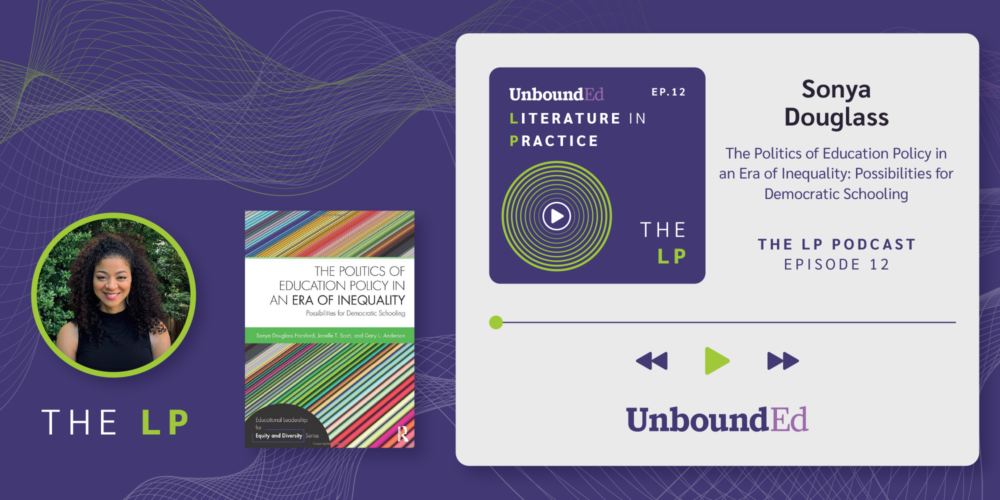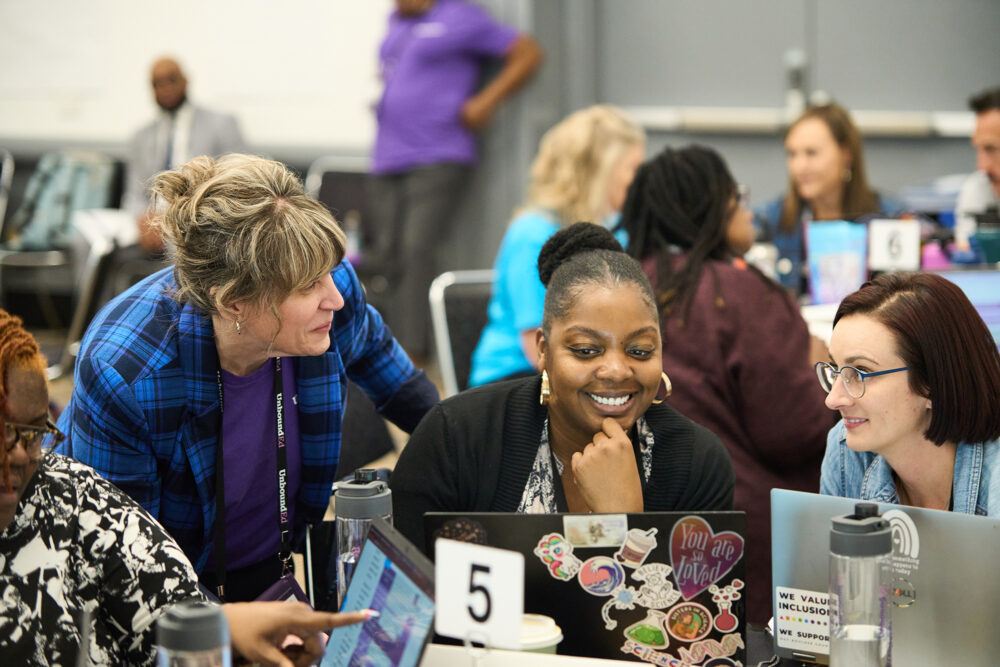
At UnboundEd, we pride ourselves on working to find justice in the details of teaching and learning. Instructional choices made in classrooms are included in those details, and it’s important to see how policy choices impact those choices in instruction. Policy choices take place at our local level, our state level, and our national level. Depending on the equity value of these choices, this multi-filtered choice system can lead to compounded success or failure for the students the systems, schools, and staff are supposed to serve. It helps to understand the background of the politics that inform the domino effect. Sonya Douglass, Janelle T. Scott, and Gary L. Anderson help us do that with their book The Politics of Education Policy in an Era of Inequality. Sonya Douglass and I discuss the book and its ability to reveal the mechanics behind the madness and the engineering that can occur so our kids can experience democratic schooling.
Key Takeaways
- From the federal to the classroom level, everybody in the education system is a policy implementer and a policy maker (instructional choices are policy). We make and deliver them within our own circles of influence and control. Knowing this can set us up to create policies that counteract inequitable policies or amplify equitable policies.
- Our education system is a house. Policy is the foundation and framing of this house, informing students’ instructional experiences. If a new house is needed, what belongs in the foundation? And how do we adjust the framing for the house to lend to grade-level, engaging, affirming, and meaningful instruction?
- I’m also wrestling with the fact that values inform policy. Dr. Douglass offers us the following values:
“Education is a civil and human right.”
“Education is a social, cultural, and political process.”
“Education is a calling and a valued profession.”
“Education is a collective responsibility.”
“Education is the practice of freedom.”
What would our instructional and institutional policies look like if we embraced these values? Thanks to the work of folks like Dr. Douglass, we can imagine and expand
opportunities to make these values a reality within our own circles of influence and
control.
.
Next steps with GLEAM®
Choose the path that fits your team

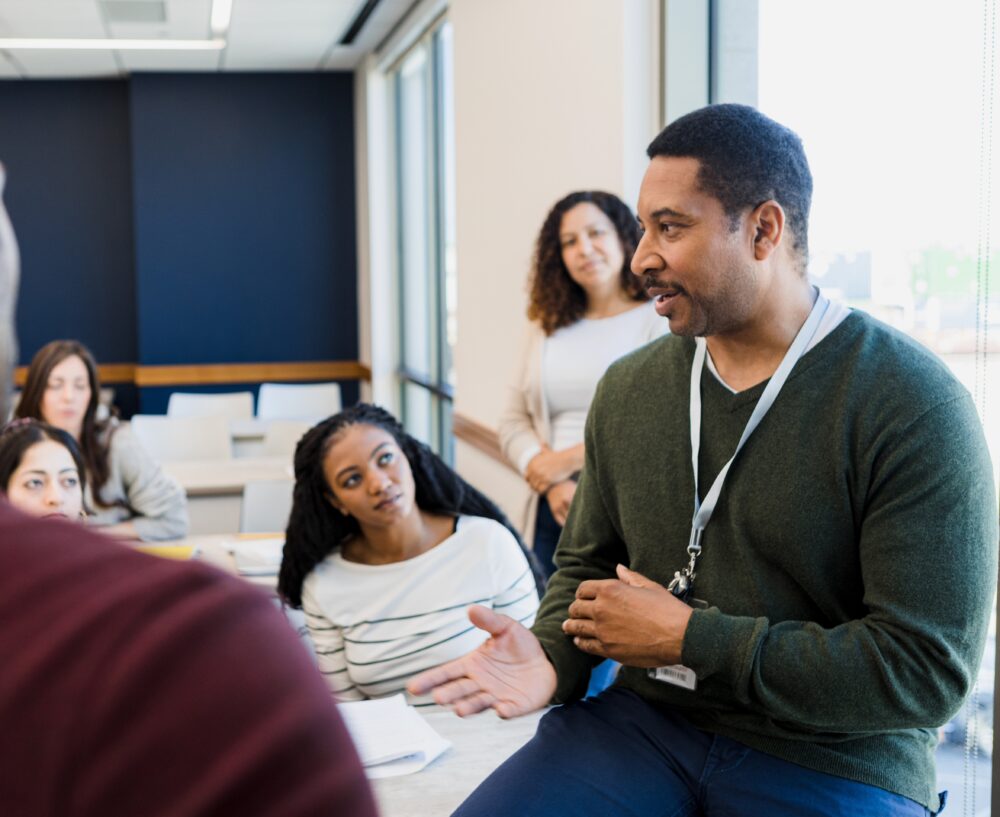
UnboundEd Summits
Accelerate your instructional vision and build educators’ skills and expertise with a virtual or on-site Local Summit.
Learn More ➜

In-Service Workshops
UnboundEd’s dynamic, hands-on workshops build educator capacity by focusing on timeless, cross-disciplinary instructional moves that drive effective instruction, rigor, and student empowerment.
Learn More ➜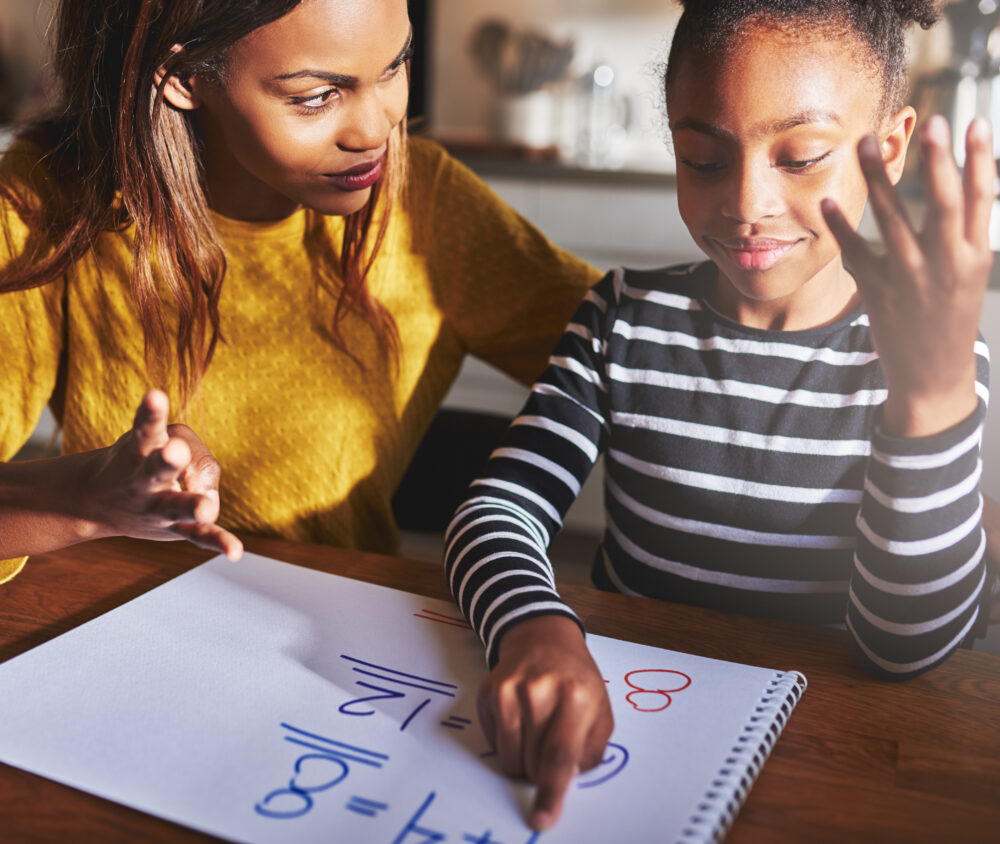
Online Math Academy
UnboundEd’s Online Math Academy courses enrich educators’ content knowledge and instructional practices to unlock all students’ math potential.
Learn More ➜
Curriculum Adoption
Ensuring quality materials are adopted and used effectively is crucial to improving outcomes and requires a strong instructional materials selection process. We’re here to share guidance and support on leading a rigorous and collaborative curriculum adoption process to select the right materials for your context and goals.
Learn More ➜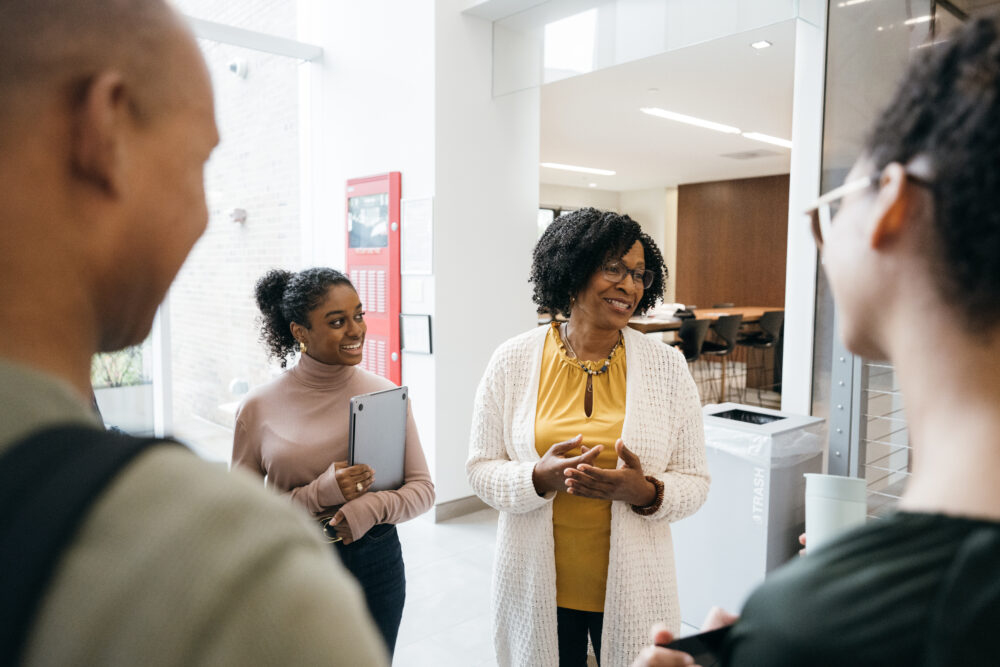
Curriculum Implementation
Just getting started, or need to get back on track? We work with you on a shared vision and an actionable plan for curriculum success.
Learn More ➜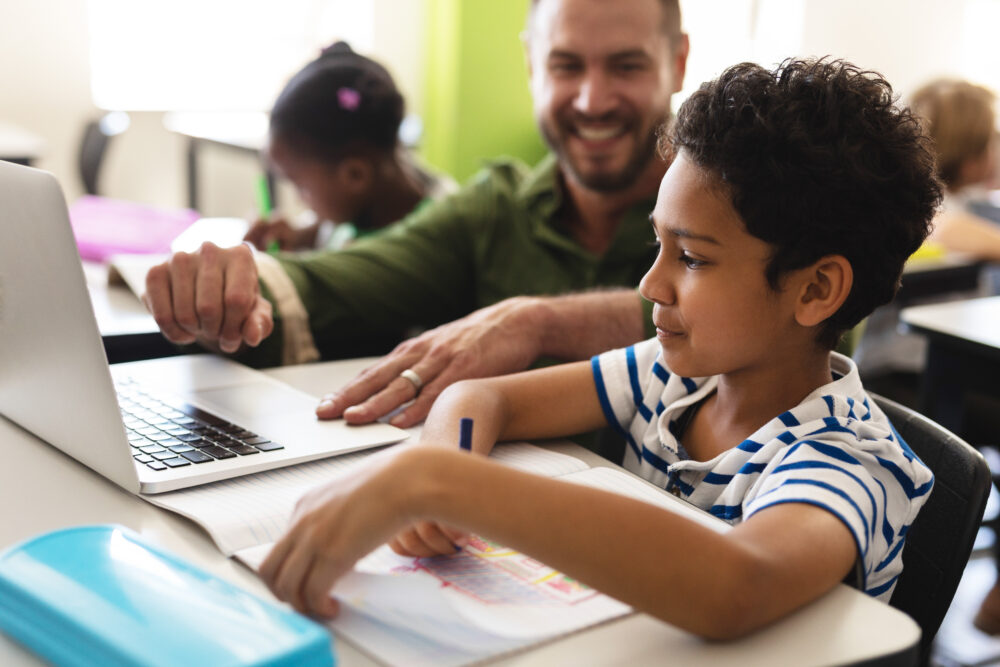
Literacy ReclaimEd
Improve literacy instruction and better meet the unique needs of every student.
Learn More ➜
GLEAM® Inventory
Build your team’s understanding of grade-level, engaging, affirming, and meaningful –GLEAM®– instruction and transform how you serve all students in your district.
Learn More ➜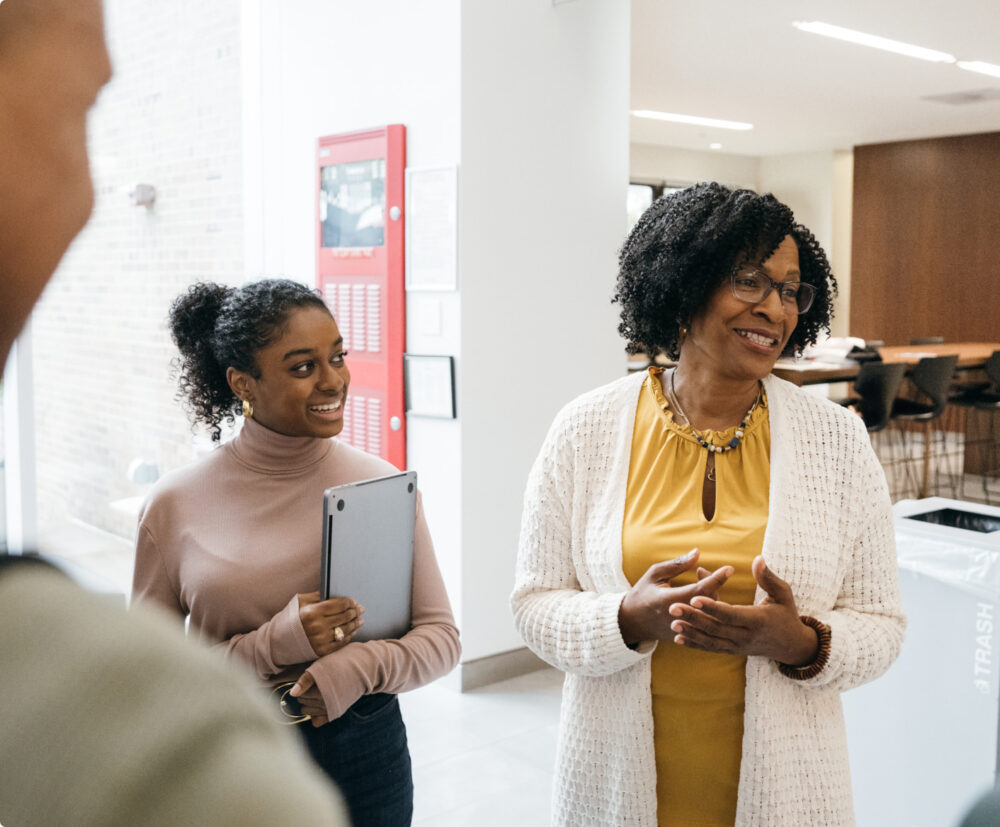
Speaking Engagements
Our experts offer inspiring, thought-provoking messages and conversations that will get your team thinking creatively about shifting mindsets and changing practice.
Learn More ➜
California Math Curriculum Adoption and Launch Cohort
Prepare to adopt and launch high-quality mathematics instructional materials with no-cost, grant-funded support from UnboundEd.
Learn More ➜